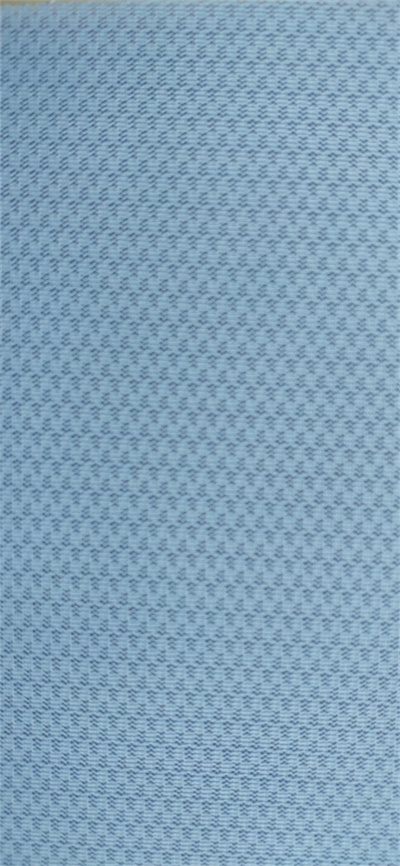What Makes Three-Layer Mesh Fabric a Game-Changer in Textile Technology?
2025-11-21
Three-layer mesh fabric is rapidly emerging as a preferred choice in sportswear, outdoor gear, and industrial applications due to its unmatched combination of breathability, durability, and flexibility. Unlike conventional single-layer fabrics, three-layer mesh fabrics integrate multiple materials to create a composite structure that enhances comfort, ventilation, and structural integrity.
What is Three-Layer Mesh Fabric and How Does It Work?
Three-layer mesh fabric is a textile material consisting of three distinct layers, each serving a specific function:
-
Outer Layer: Provides abrasion resistance, UV protection, and aesthetic appeal. Often constructed from high-density polyester or nylon.
-
Middle Layer: Acts as a cushioning and airflow channel, typically made from a soft, breathable mesh that ensures moisture wicking and temperature regulation.
-
Inner Layer: Offers comfort against the skin, using soft and stretchable materials to prevent irritation while maintaining structural integrity.
This multi-layered construction allows the fabric to deliver high performance in both extreme and everyday conditions. It is widely utilized in applications where durability and comfort are equally critical, such as sports uniforms, backpack straps, medical braces, and industrial safety wear.
Key Product Specifications
| Parameter | Specification |
|---|---|
| Material Composition | Polyester / Nylon / Spandex blend |
| Fabric Weight | 150–300 gsm |
| Thickness | 1.2–3.5 mm |
| Air Permeability | 500–1500 mm/s |
| Tensile Strength | ≥ 500 N/5cm |
| Abrasion Resistance | ≥ 50,000 cycles |
| Color Options | Customizable, including dye-sublimation |
| Application Areas | Sportswear, outdoor gear, industrial textiles |
By combining these layers into a single fabric, manufacturers can create products that are lightweight yet resilient, maintaining their shape and performance over long-term use.
Why Should Industries Choose Three-Layer Mesh Fabric?
The advantages of three-layer mesh fabric extend across multiple industries due to its superior functional characteristics.
Enhanced Breathability and Moisture Management
Traditional fabrics often trap heat and sweat, leading to discomfort. The three-layer mesh design facilitates optimal airflow while wicking moisture away from the skin. This property is especially crucial for athletic apparel, medical wear, and protective uniforms.
Durability and Strength
The outer layer provides resistance to tearing, abrasion, and UV damage, while the inner mesh maintains flexibility. This balance between protection and elasticity ensures longer product lifespan and reduced material wear.
Versatility Across Applications
Three-layer mesh fabric can be engineered for various uses:
-
Sports & Activewear: Ensures ventilation and sweat management.
-
Medical & Rehabilitation: Provides cushioning for braces and supports while preventing skin irritation.
-
Industrial & Outdoor Gear: Offers protective layers against environmental hazards without compromising comfort.
Eco-Friendly Production Potential
Recent advancements allow manufacturers to produce three-layer mesh fabrics using recycled polyester, contributing to sustainability goals. By optimizing material choices, this fabric type supports environmentally responsible textile practices.
How to Optimize Three-Layer Mesh Fabric for Specific Uses?
Customization is key to maximizing the benefits of three-layer mesh fabric. Designers and engineers can tweak material properties, weave density, and thickness according to intended use.
Factors to Consider
-
Layer Composition: Adjusting the fiber blend of each layer influences breathability, strength, and elasticity.
-
Mesh Density: Higher-density meshes increase abrasion resistance, while looser weaves improve airflow.
-
Fabric Weight & Thickness: Heavier fabrics provide additional cushioning and protection, lighter fabrics prioritize flexibility and ventilation.
-
Surface Treatment: Water-repellent coatings or anti-microbial treatments can be applied depending on application requirements.
These adjustments enable tailored solutions for high-performance needs. For example, athletic footwear may use a lighter inner layer for maximum ventilation, whereas outdoor backpacks require a denser outer layer to resist abrasion from rough surfaces.
Common Questions About Three-Layer Mesh Fabric
Q1: Is three-layer mesh fabric suitable for machine washing?
A1: Yes, most three-layer mesh fabrics are machine washable. However, gentle cycles are recommended to preserve the integrity of the middle mesh layer. Avoid high-temperature drying, which may shrink or distort the fabric.
Q2: How long does three-layer mesh fabric last under frequent use?
A2: Depending on the application and care, three-layer mesh fabrics can last 3–5 years in sportswear and up to 7–10 years in industrial applications. Durability is significantly enhanced by proper maintenance and avoiding harsh chemicals.
What Are the Future Trends for Three-Layer Mesh Fabric?
The demand for multifunctional fabrics is driving innovation in three-layer mesh textiles. Key trends include:
-
Smart Fabrics Integration: Embedding sensors to monitor body temperature, moisture levels, or posture in wearable technology.
-
Lightweight Reinforcements: Development of ultralight outer layers without compromising strength, suitable for high-performance sports gear.
-
Eco-Conscious Materials: Increased use of biodegradable or recycled fibers to reduce environmental impact.
-
Advanced Coatings: Hydrophobic, anti-microbial, and flame-retardant coatings to meet specialized industry standards.
These trends indicate that three-layer mesh fabrics will remain at the forefront of textile innovation, providing functional solutions that blend comfort, durability, and sustainability.
Advantages Recap
-
Superior ventilation and moisture management
-
High tensile and abrasion resistance
-
Customizable thickness and density
-
Suitable for sports, medical, and industrial applications
-
Environmentally adaptable production potential
By choosing a trusted manufacturer like Changwang, industries can ensure access to high-quality three-layer mesh fabrics that meet the evolving demands of modern textiles. Changwang specializes in tailoring multi-layer mesh solutions for diverse applications, delivering fabrics that perform consistently under extreme conditions. For detailed inquiries or sample requests, contact us today to explore the ideal fabric solution for your needs.



